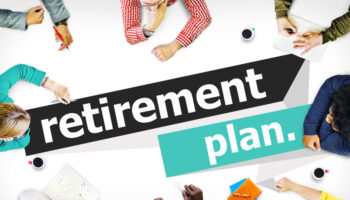Ever heard of the adage: it is best to save? When it comes to financial matters, saving is the top priority, but it is easier said than done. Sometimes, it is impossible to save, and you may need to decide on the financing option that wins the battle between instant personal loan vs. credit cards. Both of these options will offer you the cash you need, but they have different terms. One may be better than the other, depending on your financial standing and goals.
Personal Loan Vs. Credit Cards: At a Glance
A credit card is a revolving credit; thus, you can only borrow money when you are in need of it, and the payment is based on the outstanding balance at a given time. On the other hand, personal loans are a type of installment loan where you get the funds in a lump sum and repay it in equal installments over time.
| Personal Loans | Credit Cards |
| Installment loan | Revolving credit |
| Fixed monthly payments | Variable monthly payments |
| The loan will be completed once paid back over time | You may stay in debt forever if you use the card quickly |
| Use for large purchases | Used for small daily expenses |
| Low interest rates | High interest rates |
| Interest is charged until the end of the loan term. | No interest when you pay balances in full each month |
Personal Loans
A personal loan is an unsecured loan offered in lump sums. It is typically repaid in fixed installments over a period of time. A personal loan can also be referred to as an installment loan with a fixed loan term ranging from one year to five years or more, depending on the lender.
Personal loans don’t have ongoing access to money like credit cards but have low interest, especially for those borrowers with good credit scores. With a personal loan, you can use it for anything like buying new appliances, upgrading a home, consolidating debt, etc. Normally, these loans are unsecured which means they do need collateral.
When to Use a Personal Loan
Personal loans are the best choice when you need to settle large expenses like car repair, consolidating debt, home renovations, etc. Whether you want to give your home a new look, pay medical bills, or just handle those large purchases, personal loans can save the day thanks to their flexibility.
Most people take personal loans for:
- Debt consolidation.
- Buy or repair a card.
- Travel/holiday expenses.
- Cover education costs.
- Home remodeling.
Credit Cards
This is a type of revolving credit where the borrower has ongoing access to funds. Usually, a revolving credit allows borrowers to access a certain amount of money based on the credit limit. However, you don’t get that money in full; rather, you will use it whenever you need it. It is a kind of a short-term loan.
You only pay the interest on those funds you use. Therefore, you might have an open account but no interest if there is no balance. Credit cards are very different from personal loans, which require monthly payments and are normally the same throughout the whole repayment period. The card bill varies every month depending on your spending.
What you’ll owe depends on your balance and interest rate. You’ll have a minimum payment, but you will not be obligated to repay it in full. The remaining balance is carried forward to the following month, and you get charged with interest. The catch with owning a credit card is that it comes with rewards and a zero percent introductory period. Besides, they are convenient when you need to make daily purchases since they are acceptable at retailers, online shopping, and anywhere electronic purchases are used. Your credit limit may also be raised with time.
When to Use a Credit Card
The main purpose of taking a credit card is to help handle smaller, frequent purchases that you will pay off quickly. It is recommended to pay off the entire bill on your credit card before it is due to avoid high-interest rates. Credit card issues charge users interest if they carry a balance from one month to another.
Therefore, by repaying it in full, you are actually getting a free loan. When you do this frequently, you may even put your expenses on rewards cards so that you can get all benefits without the need to pay the interest. However, the key is discipline. It is often easy to start spending more than you can pay, and the rewards you get will not outweigh the interest you will owe.
Personal Loan Vs. Credit Cards: The Application Process
The way you apply for a personal loan is different than when applying for a credit card. Both options are unsecured, so there will be no collateral; however, the application procedure for personal loans can take a little longer. Normally, lenders and card issuers will do a quick credit check when you apply to get the loan and credit card.
This will help them examine your payment history and credit score to know if you are a risk borrower. After that, the DTI (debt to income) ratio will be calculated to assess how you manage your debt with your current income. But, loan lenders look more closely at your DTI ratio than the card issuer companies. You will also be required to provide proof of your income, employment, etc, before qualifying for the loan.
To Sum Up
Both personal loans and credit cards are important sources of availing quick money. However, the right option depends on your needs. Personal loans can handle huge expenses, while credit cards are only suited for smaller daily costs.






